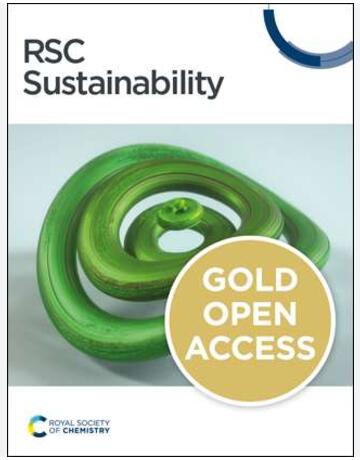从景观基因信息链角度分析万里茶道晋中段沿线传统村落文化景观的表现与遗传特征:厦门乡村个案研究
IF 3.3
3区 环境科学与生态学
Q2 ENVIRONMENTAL SCIENCES
引用次数: 0
摘要
万里茶道沿线的传统村落承载着丰富的历史文化遗产,具有重要的人文和科学价值。然而,随着城市化和现代化进程的加快,这些传统村落的文化景观的传承与保护面临着诸多挑战。基于此,本研究以万里茶道晋中段沿线的传统村落厦门村为研究对象,利用景观基因信息链的视角,揭示其独具地域特色的文化景观基因的表现与遗传特征。该研究为万里茶道沿线传统村落文化景观的保护与传承提供了理论支撑。研究结果表明(1)厦门村整体文化景观保存完好,在环境、布局、建筑、文化等方面具有显著特色,展现了丰富的历史文化积淀,具有较高的研究和保护价值;(2)厦门村的景观基因信息链在整合村落文化景观中发挥了关键作用。景观基因信息要素和点通过地域文化和物质形态表达了厦门村独特的历史传承。景观基因信息廊道的 "枝状 "结构有效地连接了各个景观基因信息点,景观基因信息网络体现了传统与现代的互动;(3)厦门村景观基因信息链的基因特征呈现出传承与变迁并存的关系。虽然一些景观基因面临现代化的挑战,但其核心性状并没有丧失。景观基因的传承不是一成不变的,而是在不断发展的社会文化背景下进行调整和重构,体现了对现代需求的适应性和灵活性。本文章由计算机程序翻译,如有差异,请以英文原文为准。
Analysis of Performance and Genetic Characteristics of Cultural Landscapes in Traditional Villages along the Jinzhong Section of the Wanli Tea Road from a Landscape Gene Information Chain Perspective: A Case Study of Xiamen Village
The traditional villages along the Wanli Tea Road carry rich historical and cultural heritage, holding significant humanistic and scientific value. However, with the rapid pace of urbanization and modernization, the inheritance and protection of the cultural landscapes in these traditional villages face numerous challenges. Based on this, this study focuses on Xiamen Village, a traditional village along the Jinzhong section of the Wanli Tea Road, utilizing the perspective of the landscape gene information chain to reveal the performance and genetic characteristics of its unique and regionally distinctive cultural landscape genes. The study provides theoretical support for the protection and inheritance of cultural landscapes in traditional villages along the Wanli Tea Road. The results show that: (1) The overall cultural landscape of Xiamen Village has been well preserved, with notable characteristics in environment, layout, architecture, and culture, demonstrating its rich historical and cultural accumulation, and offering high research and conservation value; (2) The landscape gene information chain of Xiamen Village plays a critical role in integrating the village’s cultural landscape. The landscape gene information elements and points express the village’s unique historical inheritance through regional culture and material forms. The “branch-like” structure of the landscape gene information corridors effectively connects the various landscape gene information points, while the landscape gene information network reflects the interaction between tradition and modernity; (3) The landscape gene information chain of Xiamen Village shows a relationship of coexistence between inheritance and change in its genetic characteristics. Although some landscape genes face challenges from modernization, their core traits have not been lost. The inheritance of the landscape genes is not static but adjusts and reconstructs within an evolving social and cultural context, reflecting adaptability and flexibility in response to modern demands.
求助全文
通过发布文献求助,成功后即可免费获取论文全文。
去求助
来源期刊

Sustainability
ENVIRONMENTAL SCIENCES-ENVIRONMENTAL SCIENCES
CiteScore
6.80
自引率
20.50%
发文量
14120
审稿时长
17.72 days
期刊介绍:
Sustainability (ISSN 2071-1050) is an international and cross-disciplinary scholarly, open access journal of environmental, cultural, economic and social sustainability of human beings, which provides an advanced forum for studies related to sustainability and sustainable development. It publishes reviews, regular research papers, communications and short notes, and there is no restriction on the length of the papers. Our aim is to encourage scientists to publish their experimental and theoretical research relating to natural sciences, social sciences and humanities in as much detail as possible in order to promote scientific predictions and impact assessments of global change and development. Full experimental and methodical details must be provided so that the results can be reproduced.
 求助内容:
求助内容: 应助结果提醒方式:
应助结果提醒方式:


